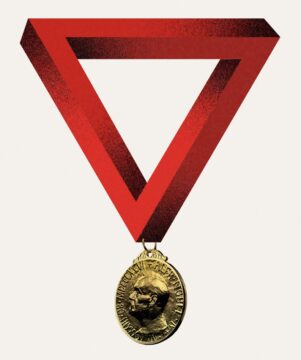A.O. Scott in the New York Times:
 The Swedish Academy is not here to tell you what writers you might like. Greatness is not the same as popularity. It may even be the opposite of popularity. Great books are by definition not the books you read for pleasure — even if some of them turn out to be, and may even have been intended to be, fun — and great writers, being mostly dead, don’t care if they’re your favorites. The great books are the ones you’re supposed to feel bad about not having read. Great writers are the ones who matter whether you read them or not.
The Swedish Academy is not here to tell you what writers you might like. Greatness is not the same as popularity. It may even be the opposite of popularity. Great books are by definition not the books you read for pleasure — even if some of them turn out to be, and may even have been intended to be, fun — and great writers, being mostly dead, don’t care if they’re your favorites. The great books are the ones you’re supposed to feel bad about not having read. Great writers are the ones who matter whether you read them or not.
How strange. And yet, how normal. “It is natural to believe in great men,” Ralph Waldo Emerson wrote. “We call our children and our lands by their names. Their names are wrought into the verbs of language, their works and effigies are in our houses, and every circumstance of the day recalls an anecdote of them.” That’s from the beginning of “Representative Men,” an 1850 collection of essays, influenced by Thomas Carlyle’s “On Heroes, Hero-Worship, and the Heroic in History,” that pursues the principle of greatness through time, locating it in a half-dozen exemplary individuals.
Given Emerson’s title and his times, it’s not surprising that all his exemplars are male. But it is notable that most are writers and thinkers, including Plato, Montaigne, Shakespeare and Goethe and Emerson’s favorite, the theologian Emanuel Swedenborg. Napoleon is the only political leader in the group, perhaps in keeping with a mid-19th-century New Englander’s temperamental mistrust of monarchic or imperial power.
More here.
Enjoying the content on 3QD? Help keep us going by donating now.
